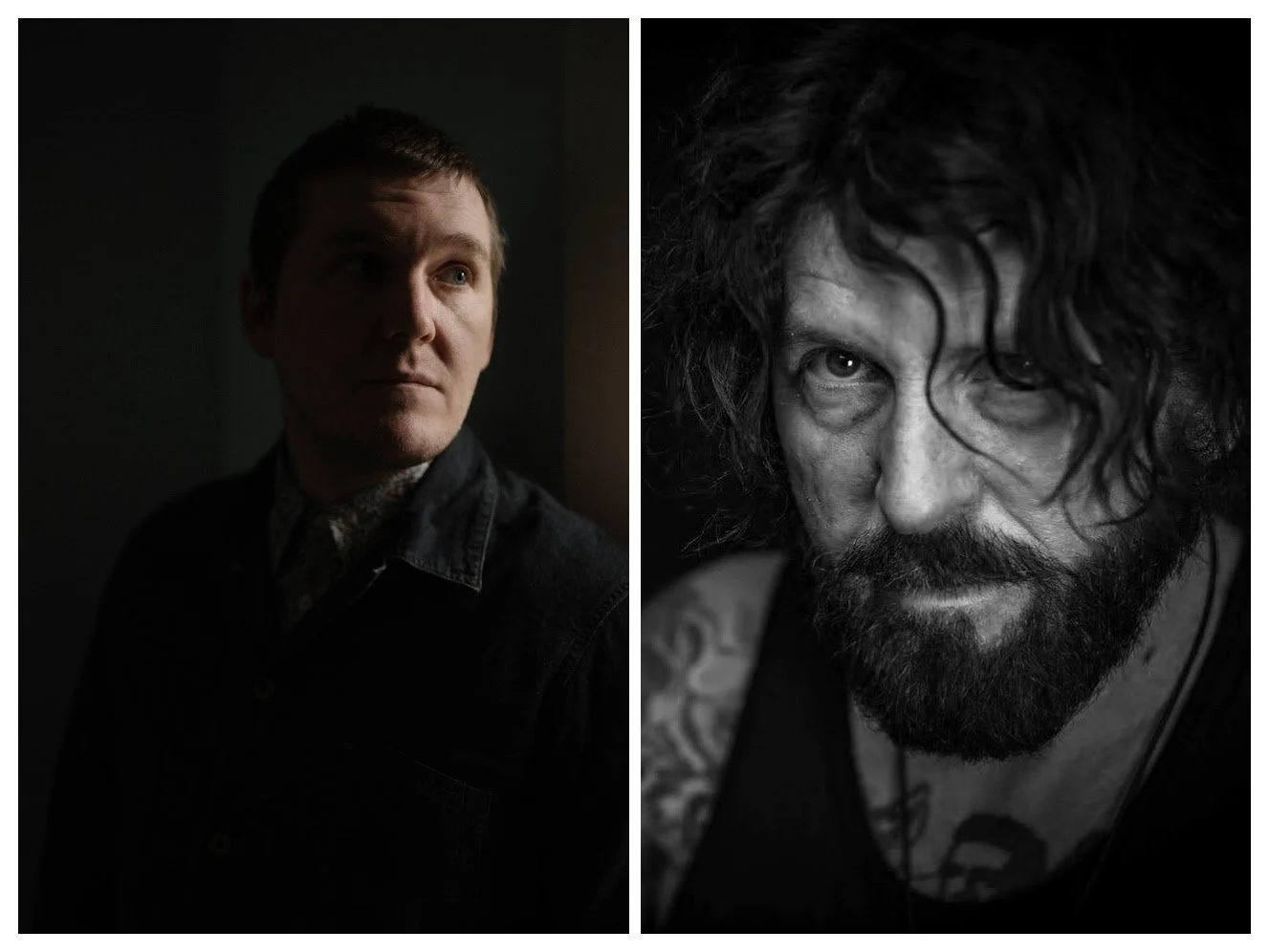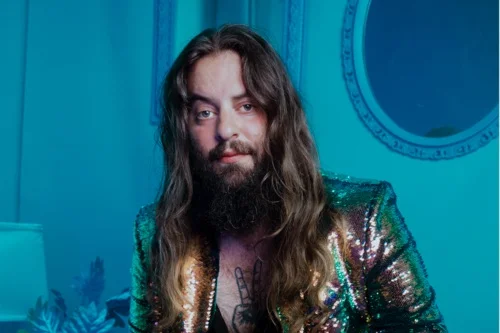Eric Burton & Adrian Quesada//The Black Pumas
“When Eric shows me a song, the first things I think about are the drums and the bass. I get inspired by cool drums all the time.”—Adrian Quesada
The key to The Black Pumas' creative process? Turn signals!
Adrian Quesada told me that he’s mesmerized by the rhythm of his car’s turn signals when he’s driving. “I’m always superimposing a 6/4 rhythm on them whenever I’m at an intersection,” he told me. So much so that that his wife often has to remind him when the light turns green.
Watch my interview with Burton and Quesada of The Black Pumas as we take. a deep dive into their songwriting process.
The band was nominated for three Grammys this year: Song of the Year, Album of the Year, and Best American Roots Performance. Their self-titled debut album is out now. Watch or listen to our interview below!
The key to The Black Pumas' creative process? Turn signals! Adrian Quesada told me that he’s mesmerized by the rhythm of his car’s turn signals when he’s driving. “I’m always superimposing a 6/4 rhythm on them whenever I’m at an intersection,” he told me. So much so that that his wife has to remind him that the light is green.
Dave Hause and Kathleen Edwards have known each other for a while and are huge fans of each other’s music, so this was a fun conversation on the creative process. We talked a lot about whether large expanses of time make them more productive, how reading affects their songwriting process, and what they do when they get stuck. And how twins and dogs affect their songwriting process.
I'm sure you're thinking, "How in the heck did you get these two guys together?" I've interviewed Fallon twice for Songwriters on Process, and I've been an LA Guns fan since their first s/t album. I first saw them live on the "Cocked and Loaded" tour in the late 80s while in college. I follow both of these guys on social media and noticed that they'd always comment on each other's posts. I figured they knew each other, so I reached out. They were both game to talk.
For Mark Morton (Lamb of God) and Alain Johannes , inspiration for songs often comes from the ordinary, everyday life. The environment is an especially fertile place: Morton says songs come to him while gardening, while for Johannes it can be the sounds he hears throughout the day.
This is the second time I’ve interviewed Morton and Johannes; I interviewed Morton in 2014 and Johannes in 2010. I’ve kept in touch with both since then, so it was easy to get these two guys together to talk about their creative process, especially since there’s mutual admiration between the two. In fact, they collaborated on the recent Mark Lanegan solo album Straight Songs of Sorrow: Johannes produced and played on it, while Morton co-wrote and also played on it.
Jim James of My Morning Jacket wants to be a happy songwriter. And a healthy one too.
A fair amount of the songwriters I’ve interviewed extol the virtues of writing while hungover. Others talk about how marijuana helps their creativity. Still others credit sobriety with making them better thinkers. But few, like James, have openly advocated physical exercise as a means to boost creativity. He wants more songwriters to get out of the studio and into fresh air. He’s also sick of the idea that misery is an essential component to writing.
“Woo hoo! I feel so energized!”
This was Tim Showalter’s first reaction when I told him we were wrapping up our interview, which had gone for over an hour. His next reaction? “Let’s do this again sometime!”
I could feel Showalter, the man behind Strand of Oaks, smiling during most of our phone conversation. He loves to talk about the creative process.
Shooter Jennings is not one for rest. While you’re reading this, he’s somewhere creating something. You may know Jennings for his career as a singer/songwriter, and that career alone should keep him busy. But this does not satisfy the man. He also creates video games just for fun: he’s on his third now and has written tens of thousands of lines of code for these science fiction role playing games.
Towards the end of my conversation with Chris Robinson, we started talking about his reading habits. In my almost 200 interviews for this site, I've learned that songwriters are voracious readers. But I was not at all prepared for the onslaught of titles that Robinson threw at me. He reads so much that I don't know where the man finds time to write. And while most songwriters stick to a genre or two, Robinson sticks to nothing. He wants to be exposed to everything. So he reads some Beat poets, then some Baudelaire. He'll move to Gene Wolfe then Knut Hamsun. Then it might be time for H.P. Lovecraft and Arthur Machen, moving on after that to Israel Regardi's The Golden Dawn or The Dreaming Jewels by Theodore Sturgeon, then some non-fiction in the form or Mary Beard. His current favorite is Brian Calling.
Robinson is the frontman and leader of The Chris Robinson Brotherhood, a band he begin in 2011. They've put out six albums in that time, the latest being 2017's Barefoot in the Head. Of course, from 1989 to 2015, Robinson fronted the Black Crowes. Besides their great music - their debut Shake Your Money Maker has not one bad song - the Black Crowes were an incredible live band. I can attest to that: I first saw them in 1990 at a club in Grand Rapids, Michigan right after Shake Your Money Maker was released. The buzz around the band had just started, and that show still stands as one of the best I've ever seen.









The experiences of Tim Showalter (Strand of Oaks) and Jessica Dobson (Deep Sea Diver) during the pandemic couldn’t be more different. Showalter’s tour cycle for his last album Eraserland ended in February; this meant the quarantine had little impact on his songwriting cycle since he already planned on spending 2020 writing. Dobson fared differently: Deep Sea Diver released Impossible Weight in October, so of course they were unable to tour behind the album, which threw all their plans out the window.